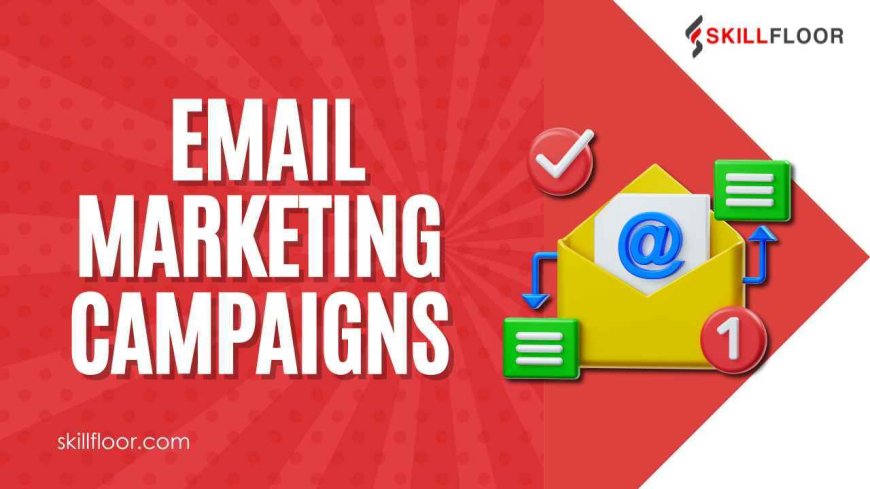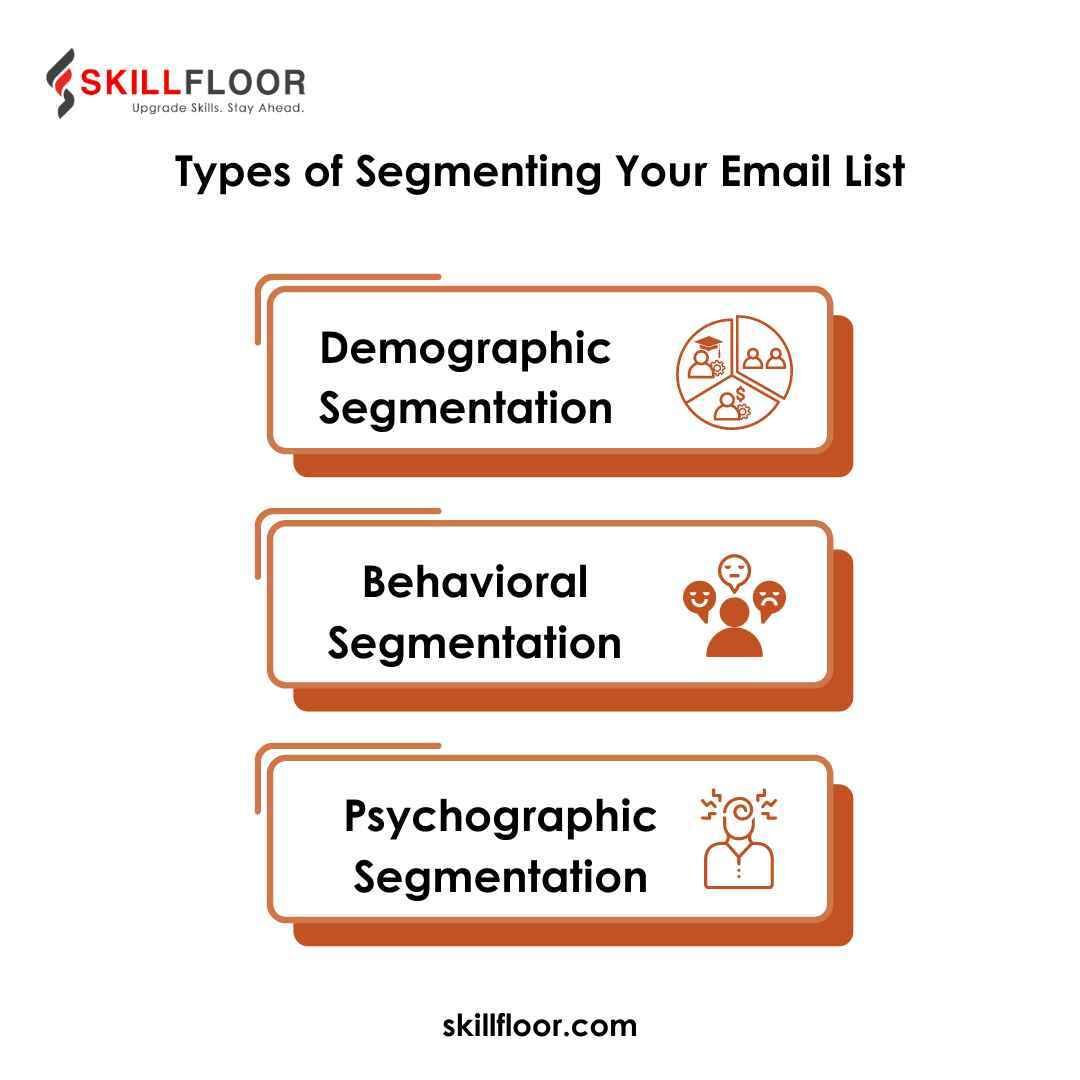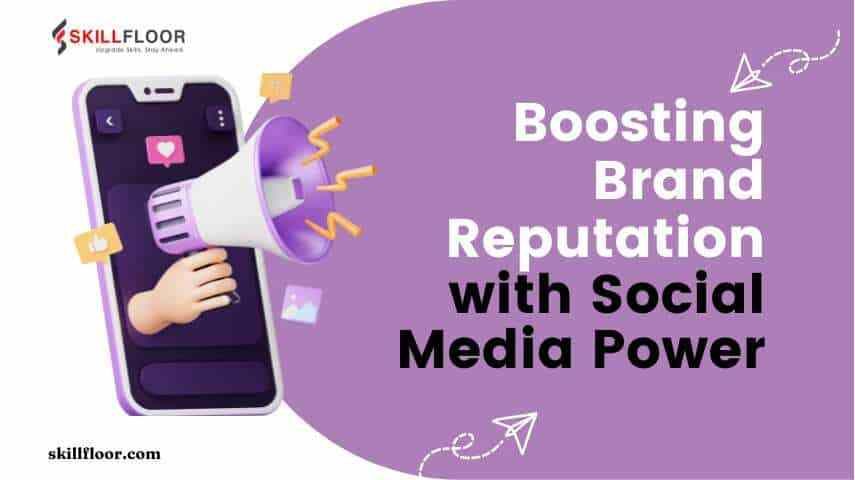How to Optimizing Your Email Marketing Campaigns
Learn effective strategies for optimizing email marketing campaigns to boost engagement and conversion rates.

Hello there! If you’re reading this, you’re probably looking to boost the effectiveness of your email marketing campaign. Email marketing campaigns are a crucial part of digital marketing because they give companies direct audience contact and the opportunity to create connections that last. On the other hand, these campaigns might not reach their maximum potential if they are not properly optimized. Understanding your target, creating engaging content, and using data to enhance performance are all essential to optimizing your email marketing campaigns. You may raise open rates, improve engagement, and increase conversions by focusing on optimization. Continually improving your email marketing campaigns can result in improved communication and outcomes, regardless of experience level. This blog covers multiple strategies for improving email marketing campaigns so that each message you send is impactful, relevant, and well-targeted. Let's study the fundamentals of email marketing campaign optimization and learn how to increase the effectiveness of our efforts.
Understanding Your Audience
Understanding your audience is the first step toward enhancing your email marketing campaigns. Who do they represent? What kinds of things interest them? What prompted them to sign up for your list? You can better adapt your material to meet their demands if you know the answers to these questions.
Create Detailed Buyer Personas: Generate descriptions of your ideal clients. Add information on hobbies, problems, buying habits, and demographics.
Conduct polls and surveys: To get candid input about what your audience likes and dislikes, use surveys and polls.
Analyze Past Campaigns: Analyze how well your prior email marketing strategies performed. Which emails received the most click-throughs and opens? What's the connection between these emails?
Crafting Compelling Content
The next step after identifying your target audience is to create engaging content that will lead to conversions. Your email subscribers should find the content engaging, valuable, and relevant.
Write Attention-Grabbing Subject Lines: Your recipients will see your subject line right away, so make a good impression. Arouse their interest in opening the email by using personalization, urgency, or curiosity.
Keep It Clear and Concise: Avert lengthy, verbose emails. Go straight to the point, concisely.
Use Visuals: You may increase the readability and engagement of your emails by including images, videos, and infographics.
Include a Clear Call-to-Action (CTA): After reading your email, what action do you want your readers to take? Be sure your call to action is strong and unambiguous.
Segmenting Your Email List
Delivering customized content that appeals to various audiences' groups needs segmentation.

Demographic Segmentation: Separate your list according to factors like region, gender, age, etc.
Behavioral Segmentation: Divide your subscriber base according to how they engage with your emails, products, and website.
Psychographic Segmentation: Assemble subscribers according to their values, lifestyle, and interests.
Your email marketing initiatives will be more successful if you segment your email list and provide more relevant and targeted messages.
Timing and Frequency
The timing of your emails might be just as crucial as their content. Choosing the appropriate frequency and timing can have a big impact on how well your campaign performs.
Test Various Send Times: To determine what works best for your audience, test sending emails at various times of the day and on different days of the week.
Be Consistent: Being consistent with your audience fosters trust. Make good on your commitment to send out a newsletter every week.
Avoid Overloading Your Subscribers: Unsubscribes may result from receiving too many emails. Strike a balance between providing enough information and not overwhelming your viewers.
A/B Testing Your Campaigns
Split testing, often known as A/B testing, involves sending two copies of an email to compare their performance. This might assist you in improving your email marketing campaigns and email quality.
Test One Element at a Time: Concentrate on one element at a time, such as CTAs, photos, email copy, and subject lines.
Use a Large Sample: Make sure the size of your test groups is sufficient to yield statistically significant results.
Analyze the results: Analyze the data to see which version worked best, then use what you learned to write better emails in the future.
Utilizing Automation
Automating your email marketing can help you save time and provide your subscribers with more individualized experiences.
Set up a Welcome Series: Send out a series of emails to new subscribers to welcome them and give them useful information about your company.
Use Drip Campaigns: Use Drip Marketing Over a certain length of time, send a series of emails to nurture leads and direct them through the sales funnel.
Automate Triggers for Behavior: Send emails with recommendations for products or reminders about abandoned carts based on certain actions taken by subscribers.

Analyzing and Adjusting Campaigns
Continuous improvement requires regular analysis of your email marketing campaigns' performance.
Track Key Metrics: Keep an eye on the following important metrics: open, click-through, conversion, and unsubscribe rates.
Use Analytics Tools: Make Use of Analytics Tools To obtain further information, make use of technologies like Google Analytics and the analytics provided by your email service provider.
Adjust Based on Data: Make educated changes to your campaigns by utilizing the information you obtain. This can entail making adjustments to your schedule, segmentation, content, or overall plan.
Ensuring Deliverability
Optimizing your email marketing campaigns requires making sure your communications get to the inboxes of your subscribers.
Maintain Your Email List Clean: Delete invalid email addresses and inactive subscribers regularly by performing email validation to keep your email list clean.
Use Double Opt-In: Use double opt-in to increase engagement and lower the number of spam complaints by verifying that subscribers truly want to receive your emails.
Monitor Your Sender Reputation: Keep an Eye on Your Sender's Reputation Steer clear of actions like sending too many emails or employing spammy language that could damage your sender's reputation.
Understanding your audience, creating interesting content, segmenting your email list, timing your messages correctly, running A/B tests, using automation, evaluating results, and guaranteeing deliverability are all necessary to optimize your email marketing campaigns. You may improve the effectiveness of your email marketing campaigns and achieve better outcomes by implementing these tactics. To make sure your campaigns continue to have an impact and be relevant to your audience, keep improving your strategy.






























































